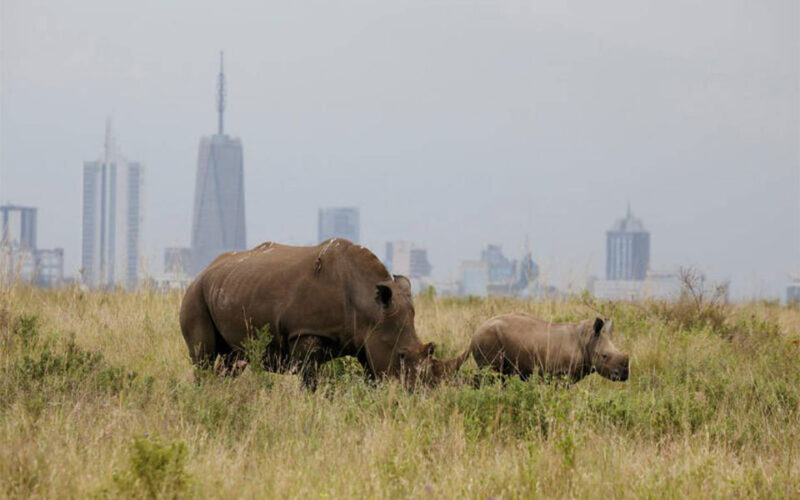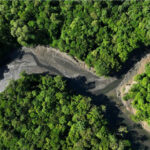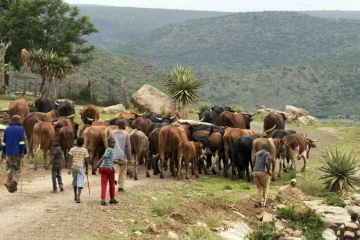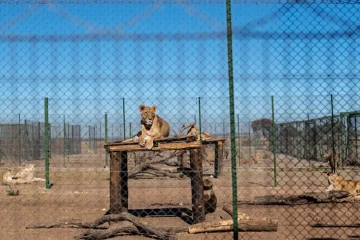MICHAEL TAYLOR
GLOBAL annual spending to protect and restore nature needs to triple this decade to about $350 billion by 2030 and rise to $536 billion by 2050, a U.N. report has said, urging a shift in mindset among financiers, businesses and governments.
The inaugural State of Finance for Nature report looked at how to tackle the planet’s climate, biodiversity and land degradation crises, estimating about $8 trillion in investment is needed by mid-century to safeguard natural systems.
Report co-author Ivo Mulder, who heads the climate finance unit at the United Nations Environment Programme (UNEP), said financial flows should work with nature rather than against it.
“It is more an opportunity to see how can you continue to do business, how can governments continue to grow economically – but do so in a way that is more equitable and sustainable. It is not impossible,” he added.
Annual investment in nature, excluding money pledged but not yet delivered, totalled $133 billion in 2020, said the report, with public funds making up 86% and private finance the rest.
The government spending was mainly for biodiversity protection, forest and peatland restoration, regenerative agriculture and water conservation, added the report by UNEP, the World Economic Forum and the Economics of Land Degradation Initiative.
A failure to ramp up investments in nature would threaten the goals of the Paris Agreement on climate change, Mulder said, while more animal and plant species would be lost.
Conservation and good management of natural areas, such as parks, forests and wildernesses, is seen as a key tool for nations to protect ecosystems and meet carbon emissions targets.
Failure to protect such areas can also lead to reputational risks for businesses, while the effects of extreme weather made worse by degraded ecosystems – such as droughts and flooding – can increase costs, said Mulder.
BUILD BACK GREENER
The report called on governments to include biodiversity and climate measures in their pandemic stimulus packages, noting that nature accounts for just 2.5% of projected COVID-19 economic recovery spending worldwide.
Governments must also ensure development aid contains conditions and targets to help cut climate-heating emissions, protect forests and limit land degradation, Mulder said.
Cutting down forests has major implications for global goals to curb climate change, as trees absorb about a third of the planet-warming carbon emissions produced worldwide.
Forests also provide food and livelihoods, are an essential habitat for wildlife and support tropical rainfall.
The report recommended tax breaks and a rethink of fossil fuel subsidies, as well as agricultural policies and subsidies which alone amount to about $700 billion per year, to stop them exacerbating land degradation and boost spending.
Businesses should invest more in making their supply chains sustainable, while new revenue streams created by forest carbon markets and nature protection and restoration projects could help companies meet their net-zero emissions goals, it added.
Banks will also need to take into account the negative impacts of their lending on nature and the climate, Mulder said.
A separate report released last year estimated that $722 billion-967 billion would be needed annually to halt the global decline in biodiversity by 2030.
Mulder said the estimate in the new U.N. report was lower as it analysed only land-related funding and did not include oceans, calling it a “starting point” for tracking nature-based investments.
It comes as a coalition of about 60 countries pushes to protect at least 30% of land and oceans by 2030, ahead of a key U.N. biodiversity summit in Kunming, China, set for October.
Mulder said he hoped governments would use the report to increase their ambition on tackling biodiversity loss.
UNEP Executive Director Inger Andersen noted this loss was already costing the global economy 10% of its output each year.
“The report is a wake-up call for governments, financial institutions and businesses to invest in nature – including reforestation, regenerative agriculture and restoration of our ocean,” she said in a statement.














